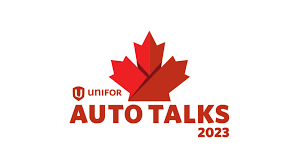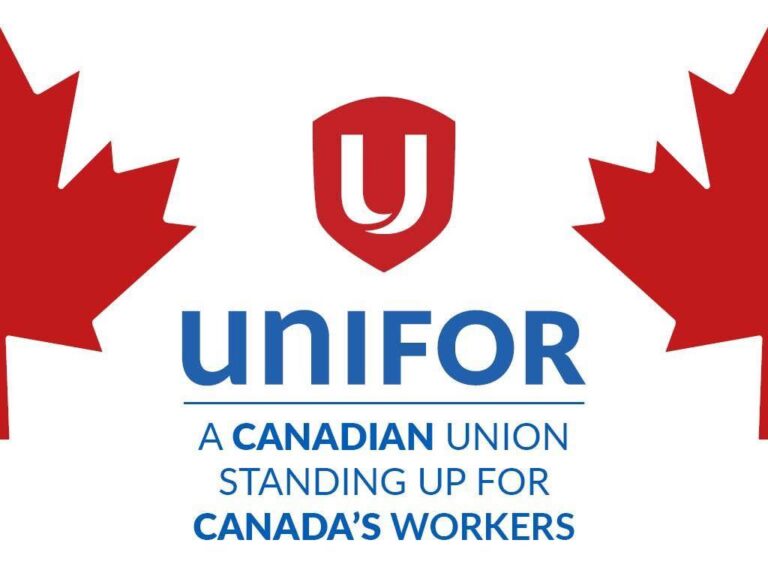Brothers and Sisters,
Below is the most up to date (as of February 23, 2022) travel updates from Green Shield. Please click on the link to see if it is changed. The info provided is directly from the Green Shield page.
Support Centre (greenshield.ca)

CORONAVIRUS (COVID-19) FAQ, INCLUDING LATEST TRAVEL UPDATES
Last Updated: February 23, 2022
Please note:
- Our latest travel updates include the impact of the Government of Canada announcing a phased easing of travel restrictions beginning February 28, 2022. We’ve also provided links to additional resources to help you plan and answer some of your questions in the event that you are planning to travel.
- Information may change at any time – we encourage you to check back regularly.
TRAVEL
Please note: All travel coverage responses apply to GSC’s standard travel benefit. (For example, they do not apply to the SureAway travel plan which is a stand-alone, single-trip travel product that is purchased separately and is not part of a health benefits plan.)
If you are unsure whether you have a standard GSC travel plan, you can:
- Contact the GSC Customer Service Centre
- Speak with your plan sponsor – if applicable
Where can I access the latest travel updates specific to COVID-19?
First and foremost, we strongly encourage you to review the official Government of Canada travel advisories. There, you will see that the Level 3 global travel advisory posted on December 15, 2021 (“avoid non-essential travel outside Canada”) due to continuing concerns with COVID-19 variants has been downgraded to a Level 2 health notice (“exercise a high degree of caution”) effective February 28, 2022.
This and other changes announced in the news release from the Public Health Agency of Canada on February 15, 2022 make it less complicated for travellers.
While the global advisory is lifted, be aware that cruise ship or country-specific or region-specific restrictions may be implemented at any time, resulting in difficulties for travellers trying to return home from abroad. If you decide to travel, it’s still important to understand your travel coverage and what’s expected of you.
Review the information published by the Travel Health Insurance Association (THiA) of Canada, including the Golden Rules of Travel Health Insurance and other resources in their:
Our travel assistance partner Allianz Global Assistance offers these tips to help you plan and prepare for what to expect while travelling during the COVID-19 pandemic.
In terms of GSC-specific travel information, you are in the right place! The Support Centre continues to be the best source of our most up-to-date information.
What are the newest travel requirements announced by the Government of Canada?
The announcement made on February 15, 2022 provided some welcome news for travellers effective February 28, 2022, including:
- Replacement of the Level 3 travel advisory (“avoid non-essential travel”) with a Level 2 heath notice (“exercise a high degree of caution”). This means that the government is no longer advising Canadians against travel but rather recommending travellers continue to take precautions to protect themselves and others from COVID-19 infections. NOTE: This is the most relevant point related to your coverage as COVID-19 is an eligible medical condition when there is no government advisory to avoid travel.
- Easing of on-arrival testing requirements and quarantine restrictions for fully vaccinated travellers.
- Expanding pre-entry test eligibility to include rapid antigen tests administered by a healthcare entity.
- Allowing international flights at all eligible Canadian airports.
For the full story, check out the news release from the Public Health Agency of Canada. Over the past couple of years, we have seen that the rules can change quickly so it is important to review the Government of Canada information when planning to travel, prior to departure, during your trip, and before returning home.
You can find information on the latest rules, with details as they are provided, by visiting the Government of Canada’s COVID-19: Travel, testing, quarantine, and borders information. This includes the requirements upon your return to Canada, such as using the?ArriveCAN mobile app to reduce wait times and limit contact at the border.
Our travel assistance partner Allianz Global Assistance offers these tips to help you plan and prepare for what to expect while travelling during the COVID-19 pandemic.
What if I choose to travel (or cruise) outside of Canada while a travel advisory is in place due to COVID-19? Am I still covered?
When there is no government advisory in place to avoid travel, COVID-19 is an eligible medical condition. Where a Government advisory is in place, we view the advisory as the primary guideline – however, we understand that plan members will make their own choices around travelling. In these situations, we firmly believe that providing peace of mind is the right thing to do.
GSC has previously announced coverage under our standard travel plans* that would be available on a temporary basis for COVID-19 related medical emergencies, even if a travel advisory is in place. That coverage remains available to travellers. Here are the key coverage details:
Emergency medical expenses related to COVID-19
Standard GSC travel plans* include coverage for emergency medical expenses related to COVID-19 for the period of August 15, 2020 through December 31, 2021, up to the existing maximums and limitations within each plan.
From January 1, 2022 to June 30, 2022, emergency expenses related to COVID-19 will be included in standard GSC travel plans* for Fully Vaccinated Travellers only (see definition, below).
Fully Vaccinated Traveller – The Definition
For the purposes of the COVID-19 emergency medical expenses and quarantine benefit, a Fully Vaccinated Traveller is someone who is eligible for and has completed the recommended vaccine treatment considered by the Canadian government (typically two doses) at least two weeks prior to departure.
You can visit travel.gc.ca to determine if you are considered fully vaccinated by the Government of Canada. Travellers who are not able to receive a vaccine in Canada based on age or medical condition will be considered a Fully Vaccinated Traveller for the purpose of this quarantine coverage, including all children under the age of 12 through June 30, 2022.
This additional coverage is applicable to all destinations globally – regardless of a COVID-19 travel advisory being in place or reason for travel (i.e. leisure, work, school) – and is subject to all other terms, conditions, and limitations of your benefits plan, including the day limit, the requirement that you must be symptom free, in good health, and that all pre-existing conditions must be stable for 90 days prior to departure.
Quarantine benefits
Going a step further, effective August 1, 2021, standard GSC travel plans* which include the COVID-19 medical coverage described above also provide some quarantine benefits for Fully Vaccinated Travellers only (see definition above) who are unable to return home as planned due to a positive COVID-19 test pre-departure, resulting in the requirement to quarantine outside of their province of residence.
This coverage extension will be in effect until June 30, 2022 and applies to all travel, regardless of whether a Government of Canada travel advisory is in effect.
*As mentioned, if you are unsure if the details above apply to your plan (i.e. whether you have a standard GSC travel plan), you can:
- Contact the GSC Customer Service Centre
- Speak with your plan sponsor – if applicable
Additionally, we encourage you to review?Government of Canada travel information?for the latest updates, including travel advisories for other reasons, in addition to requirements upon your return to Canada, such as using the?ArriveCAN mobile app to reduce wait times and limit contact at the border.
If you do travel and COVID-19 symptoms arise, contact GSC Travel Assistance immediately for support. You can find the phone number on the back of your ID card (and on your electronic ID on GSC’s mobile app). Remember that travel coverage is for emergency treatment that cannot be delayed until you return to your home province.
When travelling for work, prior to seeking medical treatment outside of Canada, the expectation is that the employer be contacted to initiate a claim with Worker’s Compensation.
If I’m not fully vaccinated, what does that mean for my coverage for emergency medical expenses related to COVID-19?
- Prior to January 1, 2022, if you were not fully vaccinated and choose to travel to a location for which there is a Government of Canada advisory in effect for COVID-19, standard GSC travel plans* include coverage for emergency medical expenses related to COVID-19, up to the existing maximums and limitations within each plan.
- As of January 1, 2022, if you are not fully vaccinated and choose to travel to a location for which there is a Government of Canada advisory in effect for COVID-19 (advising Canadians to avoid non-essential travel or Avoid all travel), you will not have coverage for medical expenses related to COVID-19. If the travel advisory is a Level 2 Health notice (“exercise a high degree of caution”) or lower, you will be covered for medical emergencies related to COVID-19 subject to the terms of your plan.
What should I do if I experience COVID-19 symptoms ahead of upcoming travel?
Keep in mind that, per the?Government of Canada advisory,?regardless of your health status, all non-essential travel to countries that are the subject of a travel advisory should be avoided. As with all pre-existing medical conditions, you may not be covered for medical treatment if you experience symptoms prior to travelling. Please refer to your benefit booklet for more details on pre-existing conditions/being “stable” to travel.
Even if your plan covers expenses related to COVID-19, the requirement to be symptom free, in good health, and that all pre-existing conditions must be stable for 90 days prior to departure, means that having COVID-19 symptoms ahead of travel will result in no travel coverage for COVID-19 related expenses.
If I still decide to travel, is there anything else I should do before I leave?
If you make the choice to travel, we strongly recommend that you complete the Registration of Canadians Abroad with the Government of Canada as another source of timely information.
Refer to the?Government of Canada’s “Travel, testing, quarantine, and borders” information?to learn more, including requirements for travellers returning to Canada.?Travellers are encouraged to use the?ArriveCAN mobile app?prior to arrival to reduce wait times and limit contact at the border.
Our travel assistance partner Allianz Global Assistance offers these tips to help you plan and prepare for what to expect while travelling during the COVID-19 pandemic.
If I travel, am I covered for the cost of a required COVID-19 test to return to Canada?
If you make the choice to travel, the cost of a COVID-19 test to return to Canada is not covered through your GSC travel coverage or through your benefits plan. It would only be covered through a health care spending account or personal spending account – if one is available to you.
Under GSC’s quarantine benefit for Fully Vaccinated Travellers, effective August 1, 2021, you may include the cost of the repeat COVID-19 test (for a quarantined traveller when required for returning home) in your claim.
The COVID-19 antibodies test is not covered through your GSC travel coverage or through your benefits plan; but would be covered through a health care spending account or personal spending account – if one is available to you.
If I travel, am I covered for the cost of the COVID-19 vaccine if I chose to get one while I’m outside of Canada?
If you make the choice to travel, the cost of a COVID-19 vaccine is not covered through your GSC travel coverage or through your benefits plan. It would only be covered through a health care spending account or personal spending account – if one is available to you.
Flights are being cancelled and/or re-scheduled, and I’m worried about quarantine rules and other entry restrictions at my destination and/or when I return to Canada. Will my trip cancellation and interruption insurance cover these types of things?
It’s important to know your policy before booking your travel plans. The situation around the world continues to change rapidly. You need to consider the day limit of your coverage to ensure that you are not away longer than you are covered by your plan. Your coverage will not be extended beyond your plan day limit if you are denied boarding or your flights are cancelled.
Trip cancellation coverage depends on many factors such as:
- When you bought your insurance and whether the trip cancellation/interruption wording excludes trips booked when a travel advisory is in effect,
- Whether your policy excludes claims for trips cancelled or interrupted due to an event or cause that is already known (such as COVID-19, a global event which has been in the news cycle daily for many months), or
- Whether trip cancellation/interruption for COVID-related events is excluded entirely.
Note: Trip cancellation benefits are not included in GSC’s standard travel plans. If your GSC travel coverage includes trip cancellation benefits – again, this isn’t common, expenses related to cancellations, delays, restrictions, interruptions, quarantines, etc. incurred as a result of the COVID-19 pandemic are not eligible for travel that is booked, or for a trip that is taken while there is a Government travel advisory in effect.
My travel supplier cancelled my trip due to COVID-19 and I have been issued a travel credit or voucher for future travel. Can I claim a refund under my trip cancellation benefit?
If you file a claim for a trip that was cancelled due to COVID-19, and you have the trip cancellation benefit as part of your GSC travel coverage, your claim will only be eligible for pre-paid travel expenses that are non-refundable or non-transferable. A credit or voucher for future travel is deemed a refund, and some credits or vouchers are valid for one or two years and some do not expire. You must be at a loss to have a claim considered under the trip cancellation benefit, and you must provide proof that you have surrendered or forfeited your rights to a travel credit or voucher if one was made available to you.
Note: Trip cancellation benefits are not included in GSC’s standard travel plans. If your GSC travel coverage includes trip cancellation benefits – again, this isn’t common, your claim will only be considered when no compensation is provided via refund, credit, voucher, etc. If you have been issued a credit, voucher, or other compensation, that portion of your expenses is not eligible.





